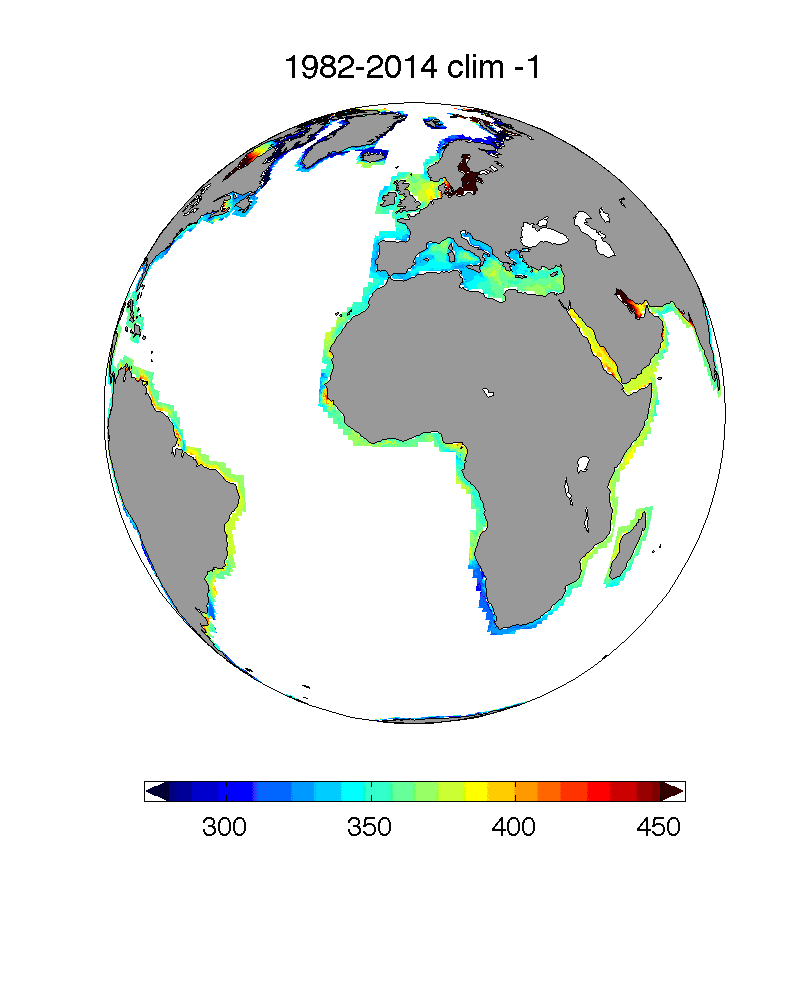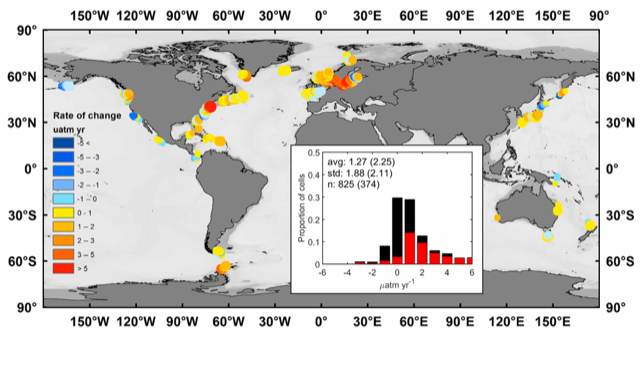Quantification of the global shelf CO2 sink
In this project, we have developed and applied advanced interpolation methods using a two-step artificial neural network to construct the first continuous global coastal pCO2 climatology at high spatio-temporal resolution. The resulting climatology achieves an unprecedent spatial resolution of 0.25 degrees and a monthly temporal resolution which allows, for the first time, the de-convolution of the seasonality in the global coastal ocean carbon budget and its underlying drivers. The second major output of this project is the very-first decadal-scale analysis of continental shelf pCO2 time-series measurements extracted from the SOCAT database. While recent work has suggested that coastal oceans play an important role in taking up atmospheric CO2, it is not known whether this sink is increasing or decreasing with time.
Our study reveals that while open ocean pCO2 is increasing at a rate similar to that in the atmosphere, shelf water pCO2 is increasing relatively slowly compared to the atmosphere, creating a larger air-sea pCO2 gradient that is driving increased CO2 uptake in shelf systems. Overall, this work suggests that the contribution of the coastal ocean to the global carbon ocean sink has been increasing over the past decades.
Relevant project(s): C-CASCADES, VERIFY
People involved: Goulven Laruelle, Alizée Roobaert, Pierre Regnier


Left: Global coastal pCO2 climatology at 0.25° resolution. Modified from Laruelle et al., 2017.
Right: Decadal trends in winter delta pCO2 for continental shelf systems across the globe. From Laruelle et al., 2018.
Carbon cycling and burial in the coastal ocean
Nutrient dynamics in the coastal ocean
Coastal benthic hypoxia